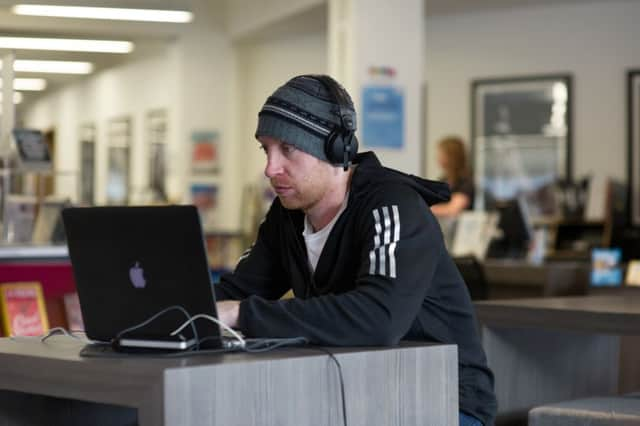Digital divide in Scotland '˜threatening to become a chasm'


Those on low incomes or who live in poorer neighbourhoods are significantly less likely to have internet access than the rest of the population, analysis by Ipos Mori on behalf of Carnegie UK Trust found.
A significant number of older Scots are also unwilling or unable to log online, meaning their use of public services and benefits is limited.
Advertisement
Hide AdAdvertisement
Hide AdThe research found those who don’t have internet access are less likely to have a car; to have been on a flight in the past year; to participate in sport; to go to the cinema, a library or live music; to volunteer; to use council services; or take part in outdoor leisure or recreation at least once a week.
Researchers were commissioned by the Carnegie UK Trust to examine data from the annual Scottish Household Survey (SHS) to paint a detailed picture of internet access north of the border.
Among those in the 20 per cent of most deprived homes, 31 per cent had no internet access - double the figure of the rest of Scotland.
While 89 per cent of owner-occupied homes had internet access, the number dropped to 61 per cent among those renting from a social landlord such as a housing association.
Age remains a significant barrier to the online world, as 76 per cent of Scots aged 75 and over admitting they never go online. The number drops to 34 per cent among those aged 60-74.
Access to the internet at home and internet use are closely aligned - but six per cent of adults say they never go online despite having the means to do so in their own home.
“Those who are digitally excluded do not benefit from the great many advantages that technology can bring,” said Douglas White, head of advocacy at Carnegie UK Trust.
“They are more limited in their access to public services, to channels for civic and democratic participation, to a wide array of knowledge and information, to opportunities for cultural and social engagement, to the labour market and to opportunities for education and learning.
Advertisement
Hide AdAdvertisement
Hide Ad“The pace of change is only likely to increase in the coming years. Public services will fully embrace digital disruption, the ‘internet of things’ will become the norm for many of us, and augmented reality will soon begin to roll out more much widely.
“As this is happening, the gap between those who are digitally engaged and those who are not is quickly threatening to become a chasm.
“Addressing these disparities is one of the great social challenges of our age.”
IT experts have previously warned Scottish businesses may struggle to fill crucial IT roles in the future if the growing digital skills gap is not addressed.
As more sectors of the economy embrace new technologies, there has never been a greater demand for experienced computer programmers.
Dr Martin Goodfellow, in-house coding expert at Glasgow’s Mitchell Library said: “What we’re seeing in the UK is a skills shortage,” said Dr Goodfellow. “We need more coders. It’s coming around as so many more sectors of the economy are embracing technology. We need more people with the right skills.
“Coding is really just a different way of thinking. Many people presume it’s difficult, but everyone I sit down and encourage to try it for the first time remarks on how much easier it is.
“It’s like learning another language.”
